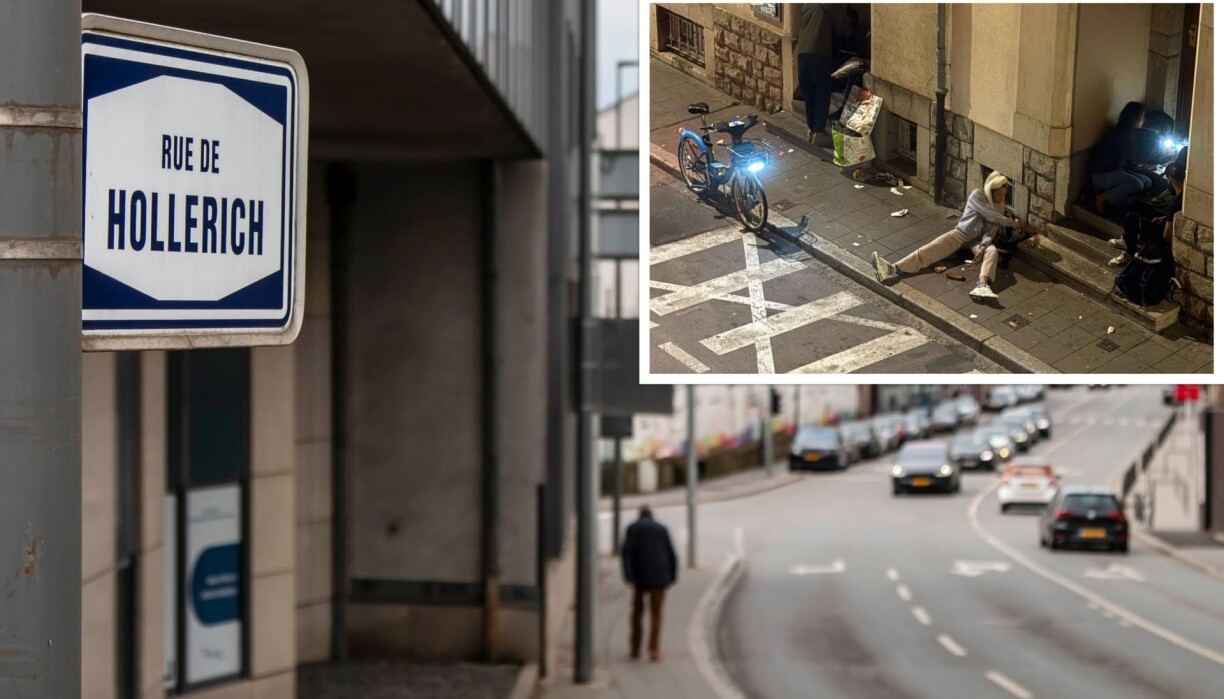
The couple, who have lived in a building on Rue de Hollerich since 2018 and have been residents of Luxembourg for 15 years, previously lived in lower-income neighbourhoods in France. Emeline explained that they were familiar with issues surrounding drugs and safety, but felt the situation at the Gare district had significantly worsened in recent years.
They described witnessing daily drug dealing right outside their home, with Jérôme noting that he had counted up to 18 individuals regularly occupying their street. According to him, the activity appeared highly organised, with lookouts stationed on every corner. When police arrived, someone would give a signal, causing the dealers to scatter – only for them to return soon after.
Jérôme, currently on parental leave, said the situation was taking a serious toll on his mental well-being. He admitted that the constant stress, particularly when taking his daughter out in her pram, had led him to speak with a psychologist. He expressed frustration and a sense of abandonment, suggesting that the scale and regularity of the drug trade was so visible that residents could easily pinpoint when it was most active.
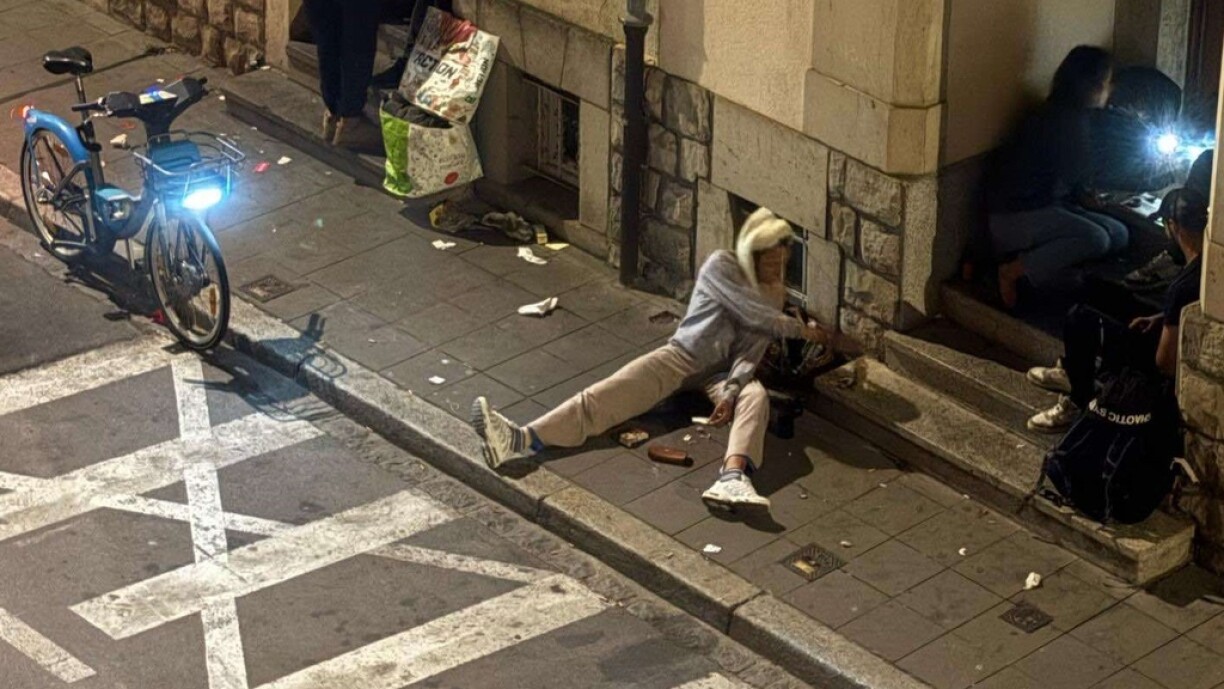
In fact, Emeline described how the dealing typically began around 9am and continued until late evening, including weekends. She explained how the operation was clearly structured, with some individuals posted at bus stops all day long, making it unavoidable for commuters. She even recounted witnessing how transactions played out, noting that buyers were sometimes passed from one dealer to another before the drugs were delivered – each person playing a distinct role.
Jérôme added that such operations were commonly referred to in dealing circles as “spots” or “territories”, and noted how profitable they could be. He pointed out that in major cities like Paris, even smaller areas could generate tens of thousands of euros a day. Although he couldn’t estimate the figures for Luxembourg, he said the dealers in his neighbourhood appeared to offer a wide variety of drugs and served all kinds of clients – from everyday individuals to visibly wealthy customers.
He went on to explain that transactions took place in several ways, with some involving people on foot, others involving stashes hidden under rocks, and many deliveries being made by car, often using parking spots designated for quick drop-offs, in what resembled a drive-through setup.
Read also: We need to act sooner rather than later to save Gare
According to Emeline, the effects of the drug scene extended beyond the street and into their residential building. She recalled how Jérôme had to get up multiple times one night to check that no one had broken in. Within two days, the building experienced two separate incidents.
In one case, someone had defecated in front of the communal garage entrance. Emeline explained that she had accidentally driven through it, which spread the mess even further. That same night, a homeless man entered the building, and a neighbour was awoken in the early hours by the smell of smoke. Thinking there might be a fire, she stepped into the corridor and encountered the intruder, who reportedly apologised and left immediately.
However, the following night, the same man returned with a woman, and the pair were found asleep in the stairwell. Emeline described the scene as unhygienic and unpleasant, with tissues, personal belongings, and cigarette butts strewn across multiple floors and even inside the lift.
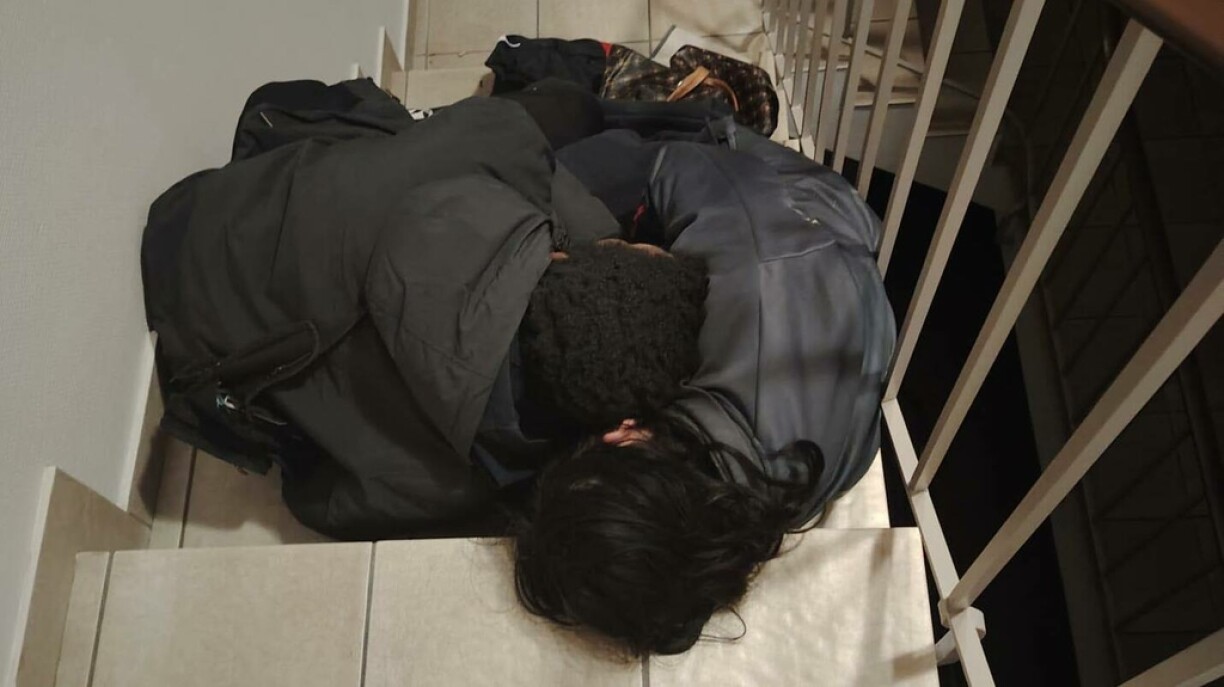
Additionally, Jérôme expressed deep frustration with what he perceived as a lack of response from the police. He said that despite both he and a neighbour reporting the intruder and providing their contact details, no officers ever followed up. In contrast, he recalled that when a nearby dance club held an outdoor class one evening and caused minor noise, the police showed up promptly.
Following up on his disappointment with police, Jérôme mentioned witnessing an incident that left him particularly disheartened. While out walking with his family, they had seen several drug users openly smoking crack pipes. A police car reportedly approached but did not intervene, even after one of the users shouted a sarcastic remark. Jérôme said this moment left him feeling like the authorities had given up.
Although Jérôme acknowledged that the police may be prioritising other matters, he warned that drug use, once mostly concentrated near the “Abrigado” supervised injection site, had now spread into surrounding streets and residential buildings. He feared the problem would continue to grow.
Jérôme further stated that he was even able to identify specific individuals acting as intermediaries between users and dealers, which prompted him to question why the police seemed unable to identify them. From his window, he claimed, the entire operation was visible. At times, he said, the street resembled a scene from a zombie film, with dozens of individuals openly using drugs.
They are not the only ones who feel powerless against the drug-dealing scene, as shopkeepers shared similar concerns and frustrations, according to Jérôme. For him, the issue was no longer about a vague sense of insecurity, but about a very real and worsening situation.
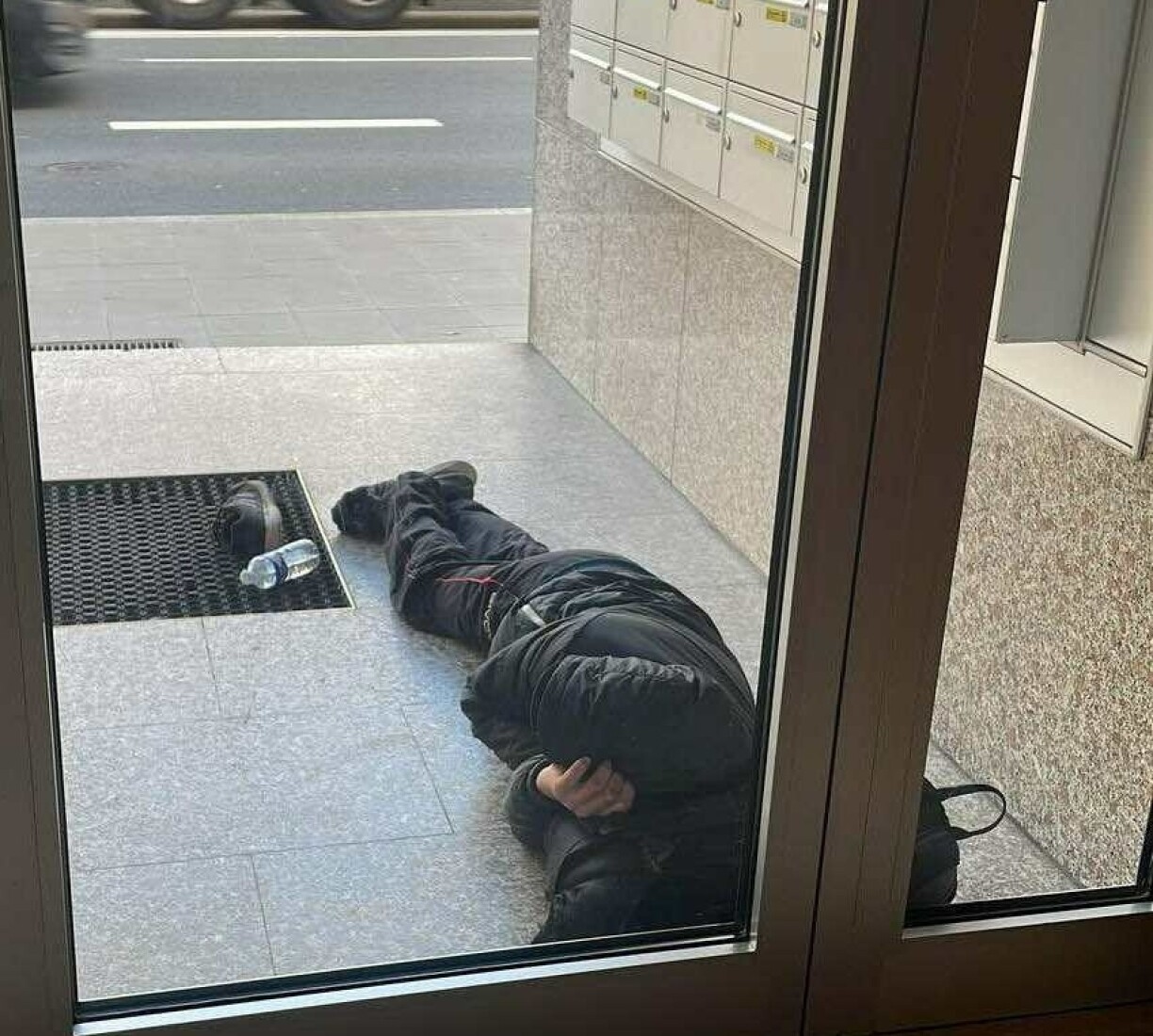
Given the dire circumstances, a community WhatsApp group had floated the idea earlier this year of forming a citizen patrol around the station area. The proposal was dismissed by Mayor Lydie Polfer of the Democratic Party (DP), with Jérôme agreeing that it was not a viable solution. In his view, such a move would be unrealistic, arguing instead for a serious, long-term strategy focused on prevention and clearer enforcement. According to Jérôme, anyone participating in a drug network – from lookouts to intermediaries – should face consequences, not just those caught with drugs in hand, since catching dealers in the act is notoriously difficult.
While RTL was reporting on site, mediators Joey and Michele, working for the non-profit organisation Inter-Actions, were seen patrolling the area. Wearing green vests, they explained that their role was to support socially vulnerable people and improve living conditions in the district.
Joey stated that if drug users were found lingering in building entrances, they would politely ask them to move on, always using a diplomatic approach – which, in most cases, proved effective. However, Joey noted that they could not enter private properties, adding that part of their work also included maintaining a visible presence near schools as a preventive measure.
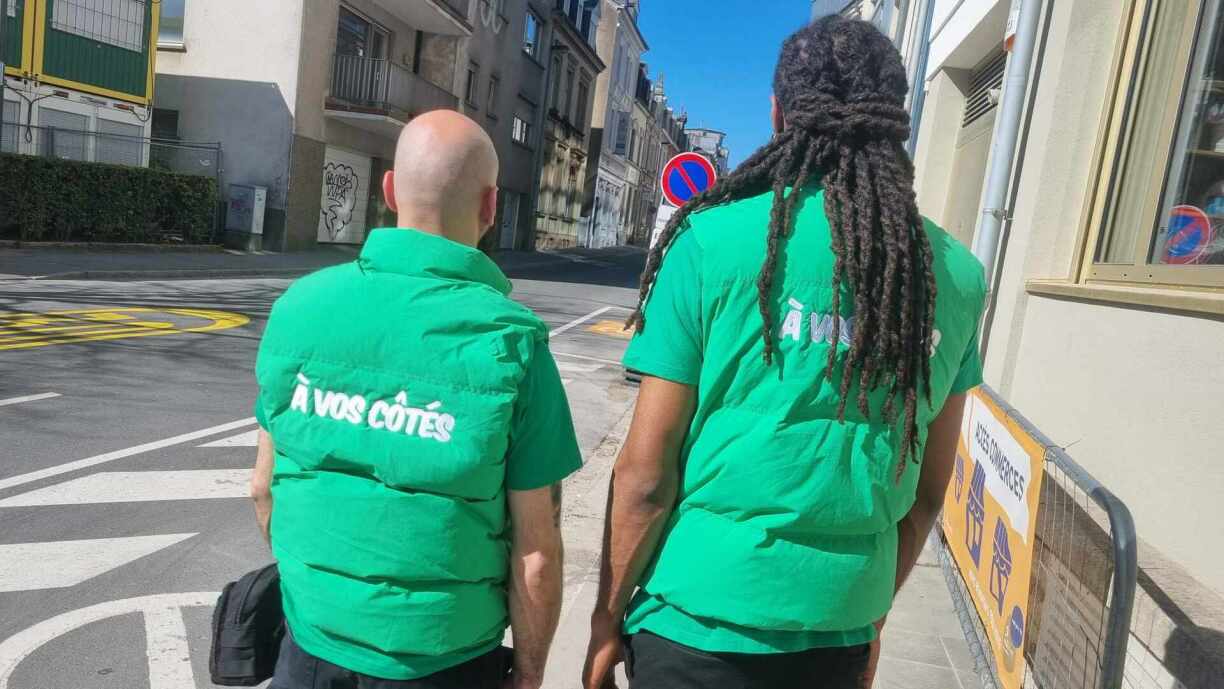
Michele expressed satisfaction with the role, explaining that helping people had always been important to them. When someone who is homeless wants to turn their life around, Michele said they do their best to connect them with the appropriate services, while also acknowledging that the job could be challenging at times, especially when individuals were in a bad mood, concluding that calm communication was key to de-escalating such situations.